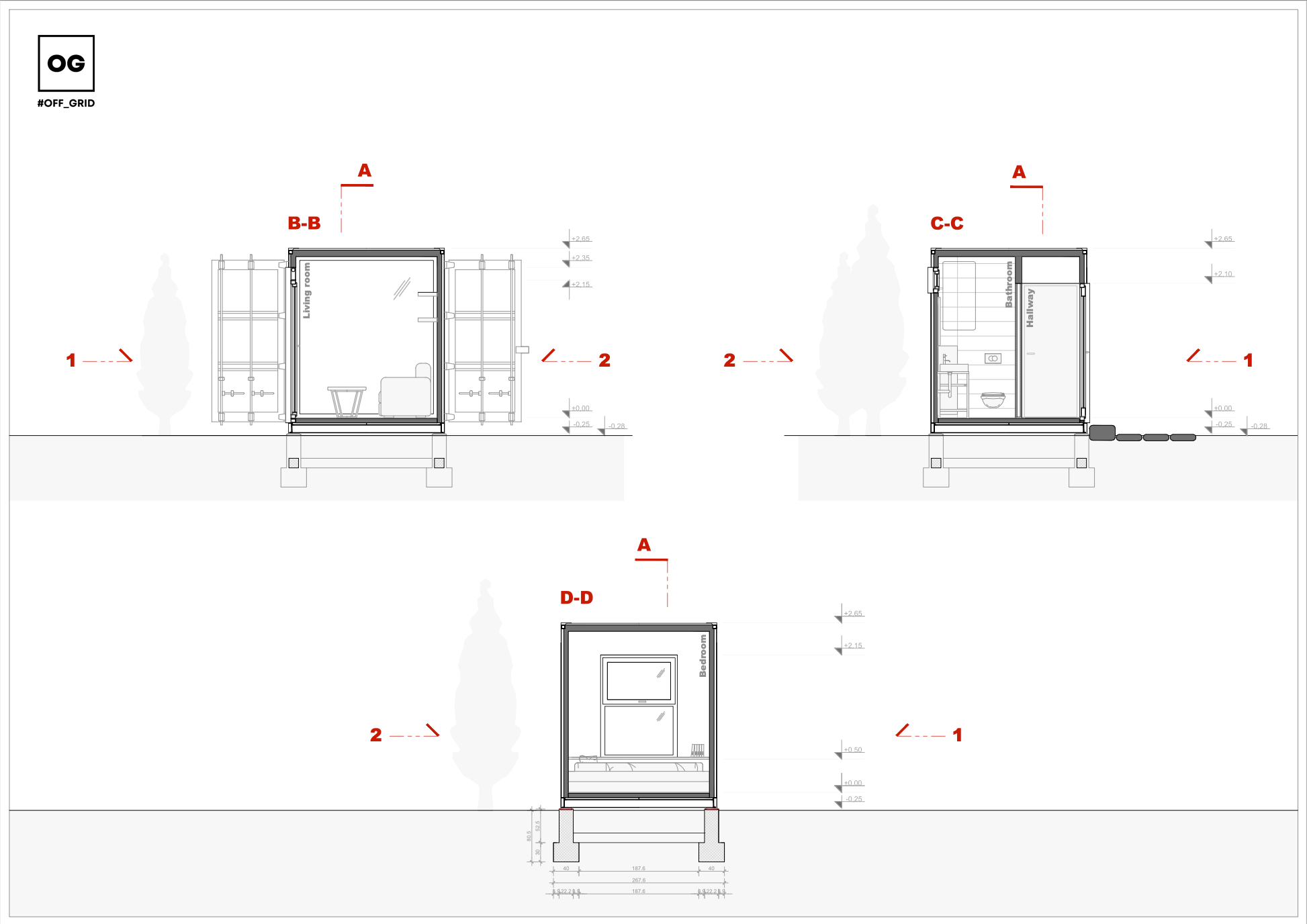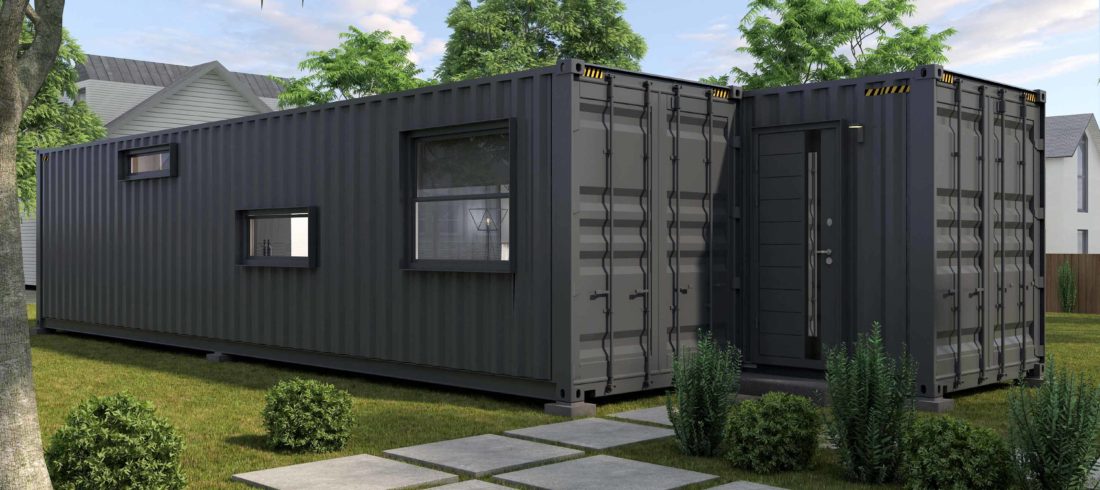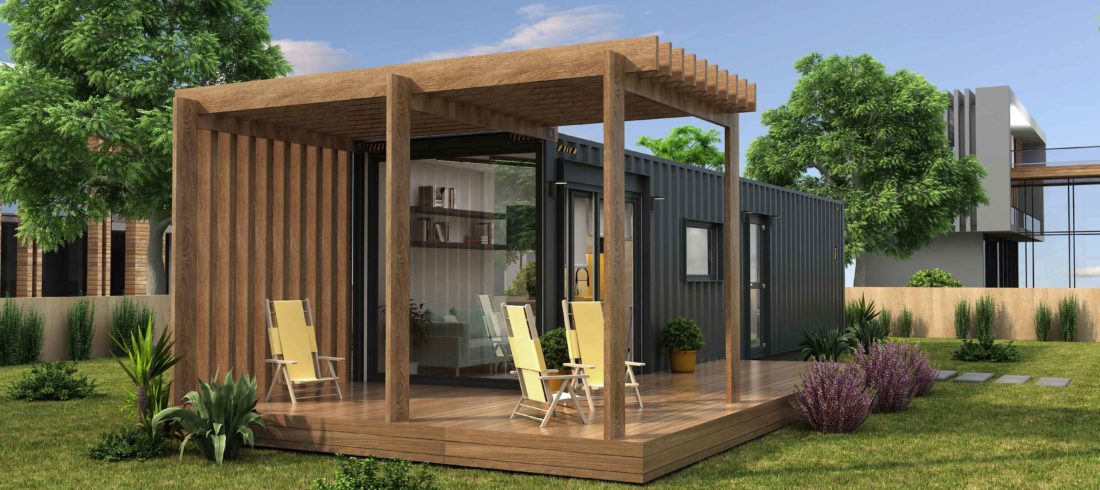Made of long-lasting steel and easy to transport, it’s easy to see how shipping containers ended up being utilised in such diverse and compelling ways in both commercial and domestic settings. These upcycled cargo boxes are both endlessly versatile and incredibly cost-effective when compared to established building methods. From holiday homes and office space to restaurants and cafes, these classy crates can do it all.
Their popularity continues to gather pace, with everyone from first time home buyers to retirees embracing their enduring charms. As house prices and living costs continue to rise, it’s likely that shipping containers will pick up even more converts in the years to come. Ultimately, for as long as people relish the freedom and sustainability on offer, they’ll remain a vibrant alternative to the limitations of modern living.
As temporary structures, shipping containers are usually exempt from the usual planning permissions and building regulations. Even so, if you’re considering buying a shipping container, it’s useful to do some basic research before embarking on your next great adventure. Let’s take a closer look at the rules and regulations surrounding converted shipping containers.
Does a Shipping Container Need a Building Permit?
First things first, it’s important not to confuse building permits with planning permission. Building permits are needed to make sure that every new building meets the same standard of safety, comfort and energy efficiency. To satisfy the requirements of a building permit, a new construction project will need to have effective insulation, structural integrity, ventilation, drainage, new electrics, and more.
However, the need for building permits tends to focus more on permanent or lasting alterations to a traditional brick home. This could include anything from adding a kitchen extension to knocking down several inner walls to create a bigger living area. Because upcycled shipping containers are generally classed in the same bracket as caravans and other mobile living spaces, the consensus is that you would not automatically need a permit for a shipping container. That said, as with the subject of planning permission, it’s always nice to know for sure before you take the plunge and put down an order.
It’s also worth noting that prefabricated shipping container homes and businesses are factory-made in line with strict UK building regulations, so arrive ready to be lived in. These custom-made shipping containers are built by experts, so come with a guarantee of structural integrity that wouldn’t automatically be met if you were building your own home. It’s therefore unlikely that you’ll need a building permit for a shipping container, but if you prefer to be extra sure, you might want to check with your local authority first.
The Difference Between Planning Permission and Building Regulations
Planning permission and building regulations are often confused. In reality though, the two are totally different, as they cover completely distinctive spheres within building work. Planning permission is primarily concerned with the impact of a new building on its immediate environment and any neighbouring properties. Building regulations are concerned with the technical side of construction work, and are there to ensure that new buildings are safe, sustainable and habitable.
In the vast majority of cases, shipping containers are exempt from both planning permissions and building regulations. As temporary structures, a huge part of their appeal comes from how easily they can be transported, both as homes and as businesses. This means that planning permission is generally only needed in exceptional circumstances, such as when one is placed in an area of outstanding natural beauty or near a listed building.
A Guide to Building Regulations for Shipping Containers
Building regulations for shipping containers are pretty straightforward. Essentially, if used as living or working spaces they’ll need to follow all existing building codes to ensure that they’re safe, comfortable and energy efficient. Luckily, prefabricated shipping containers are built to an extremely high standard and offer all of the same safety features and creature comforts that you would associate with conventional houses. There are no cut corners with prefabricated homes, so you can realistically anticipate a comparably safe and comfortable standard of living.
However, it’s worth reiterating that if you’re intending to build your own shipping container home or business, you’ll need to satisfy those regulations yourself, to ensure the safety of both you and your customers. Unlike prefabricated shipping container homes, in which the obligation to meet regulations rests with the manufacturer, you’ll be personally responsible for satisfying the exhaustive list of regulations. If you’re still unsure about the need for planning permission, it’s best to get in touch with your Local Planning Authority to gain clarification. Similarly, if you’re designing your own habitable space you should first speak to your local council’s Building Control department about the building regulations you’ll need to meet.
The last thing you’d want to do is come towards the end of your project only to find that you’d missed an essential step.
Quality, Comfort and Safety as Standard
Building your very own home is a skilled task that only appeals to a relatively small section of the ever-growing shipping container movement. For most pleasure seekers, the desire to find a home that can be moved from the countryside to the coast is a vision that should only be realised by experienced specialists. That’s where Live Off Grid comes in.
Our mission is to help people hit the reset button and return to the wonders of nature without having to compromise on quality, comfort, or safety. All of our shipping containers are built in line with UK building regulations, so are ready to use from the moment they arrive in your garden, campsite, or business space. Made to the highest possible safety standards, they come with a guarantee of structural soundness, as well as being properly insulated, flush with the finest fittings, and energy-efficient.
Whether you’re after an eco-friendly home, spacious personal gym, or swimming pool for entertaining on those long, hot summer nights, we can breathe life into your dreams. Reset, reconnect and return to nature. Live Off Grid.
For more information please contact us at [email protected] today.









